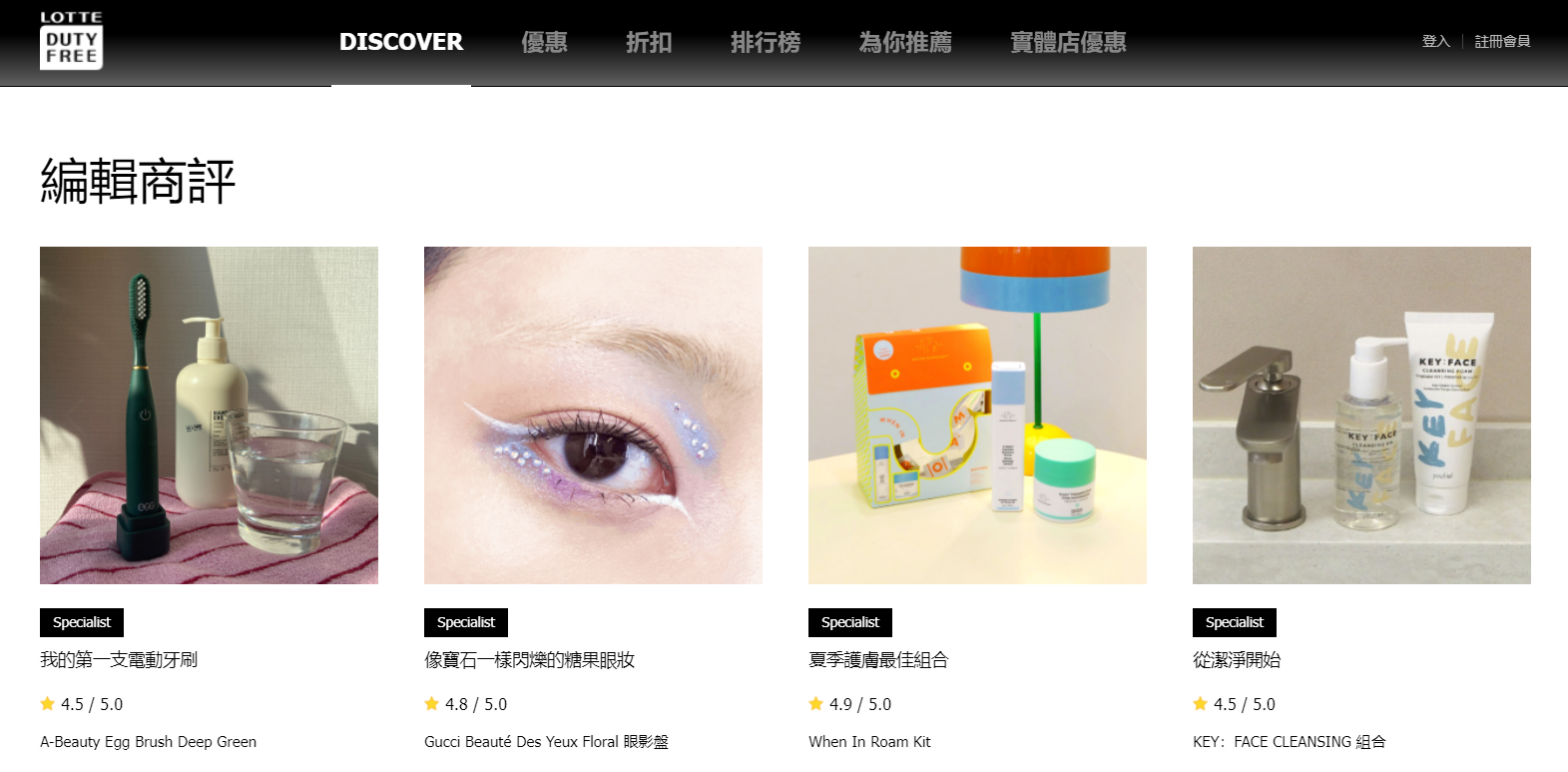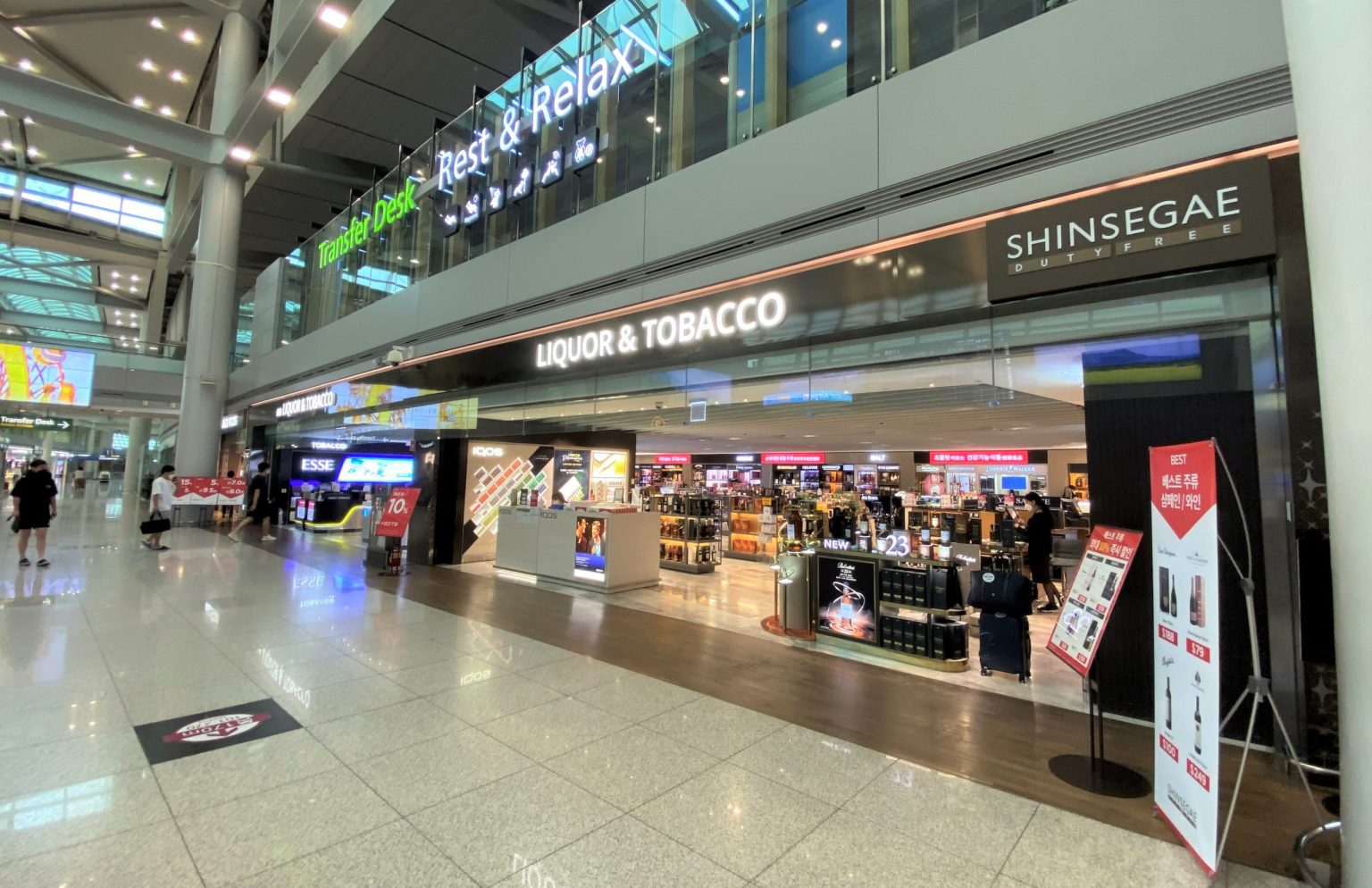면세산업 회복을 위한 공동전선
수십년간 이어져온 면세업계의 규제 혁신
SOUTH KOREA. At an historic meeting on 14 September, Korea Customs Service (KCS) announced a range of innovative regulatory measures to revive the duty free industry. These include the deregulation of online duty free and the addition of wines & spirits to the permissable categories
KCS Commissioner TaeSik Yoon invited 12 CEOs of large and SME Korean duty free companies to present the regulatory changes. The Moodie Davitt Report’s Korean correspondent Ahn Sang Joon, formerly Incheon International Airport Corporation’s Director Airside Concession Team until 2015 and now an independent consultant, assesses the key talking points. Note: A Korean version of this story follows below.
The outcome of the 14 September meeting has huge potential implications for the duty free industry after a long period of tight control marked by a highly conservative government view towards the sector. Combined with the long-awaited Incheon International Airport duty free tender set to be launched soon (likely in November); the recent hike of the duty free allowance from US$600 to US$800 per person; and the end of travel restraints, the travel retail business climate suddenly looks a whole lot more positive.
Here are the major KCS action plans, which take the shape of 15 tasks designed to revive an industry devastated by the pandemic.
- Deregulating online duty free: Until now, only downtown duty free shops could operate online sales channels. With the new measure, any duty free retailer, including those at airports, can launch an ecommerce site. Importantly, this opens the door to airports such as Incheon International to run online services upon departure or arrival.
Even though the details for implementation are yet to be ironed out, this is a big step forward for Korean airports. They will finally realise the long-awaited opportunity to run airport-dedicated retail channels, mirroring overseas examples such as Changi, Frankfurt, Auckland and Heathrow airports.
Analysing the detail
The following discussion points relate to how concession fees from airport online channels will be structured for the retailers concerned, in terms of sales, payments, marketing, and delivery process.
- Duty free collection upon arrival: In the future travellers will be able to place their advance orders online and pick up the goods at existing collection points on departure at the airport or upon arrival. This measure is designed to ease the burden of carrying the purchased duty free goods during the travel journey (while encouraging Koreans to shop at home).
Online duty free sales represented 30.6% of the Korean duty free market in pre-pandemic 2019. The new measure is sure to boost ecommerce sales due to the convenience factor for Korean travellers. One issue arising is the potential conflict of interest between large corporates and SMEs. The large groups such as Lotte, Shilla, Shinsegae and Hyundai clearly have a stronger position as their portfolios are packed with popular and competitively priced SKUs.

- Sales through open market platforms: Ecommerce sales have been soaring in the Republic with around +20% year-on-year growth. The leading players in the US$148.9 billion domestic online shopping sector are Naver, Shinsegae and Coupang.
Korea is a highly connected society in which 47% of total shopping is currently done via the internet. So the new measure allowing duty free retailers to work with the major domestic platforms paves the way for them to expand their reach considerably.
The challenge will lie in setting up cooperative schemes with the domestic platforms. Much remains to be done. If this can be achieved, the rapid evolution of the metaverse and VR could mean that collaboration with ecommerce giants will see duty free retailers tap into a new market.
- Sales of liquor via online duty free shops: Importantly, the changes allow the purchase of liquor from online duty free shops with collection upon departure at the airport. Until now, the listing of wines & spirits through online duty free was prohibited in Korea.
Popular liquor brands are typically planned purchases when Koreans travel. The new scheme will allow travellers to compare prices online and reserve their desired items before departure.

When implemented, this could transform the shopping behaviour of key customer groups because they will be able to precisely calculate and purchase according to their duty free allowance limit. This is likely to enhance the dominance of well-known brands and lead to keener prices because both stock availability and price will be identifiable online.
Once online liquor sales are combined with arrival pick-up, many Koreans are likely to place orders for their favorite liquor items and reserve them for when they return home.
Remember that KCS increased the duty exemption allowance of liquor from 1 bottle to two bottles per person separately from the US$600 duty exemption for other categories in August.

On the same day as the new measures were revealed, KCS and duty free retailers agreed to formulate the so-called ‘Government-Private Joint Committee for Duty-Free Industry Development’. This initiative highlights the collaborative approach to overcoming the lingering damage of COVID-19 as soon as possible.
Although the prevailing winds are blowing behind a strong market recovery, there may be headwinds in store. Excessive daigou commissions paid by retailers to the shuttle traders who still dominate the market and a very strong US dollar are the main current obstacles.
KCS acknowledged the pressures posed by the high Daigou commission rates in outlining its plan to stimulate the duty free market and ease the financial burden of retailers.
The Moodie Davitt Report will continuously follow up on the impact and implications of the KCS measures, the strong Dollar and other issues facing retailers in what remains the world’s biggest duty free market.
관세청은 2022년 9월 14일 면세산업 활성화를 위한 규제혁신 방안을 발표했다. 윤태식 관세청장은 국내 대·중소 면세기업 대표 12명을 초청해 업계 리더들의 의견을 듣고, 면세산업 지원을 위한 활성화 대책을 발표했다.
정부의 면세산업에 대한 보수적인 견해로 인해 오랜 세월 엄격한 통제 이후에 이루어지는 변화가 업계에 미칠 잠재적 영향은 클 것이다. 특히 2022년 11월로 예상되는 인천공항 면세입찰을 준비하는 데 있어서는 최근 1인당 600달러에서 800달러로 면세 허용 한도가 상향 조정된 것과 더불어 이번 조치가 큰 영향을 미칠 수 있다.
코로나19로 침체된 산업을 살리기 위한 관세청의 15개 혁신과제 중 주요 내용은 아래와 같다.
– 온라인 면세점 규제 완화: 지금까지는 시내면세점만 온라인 판매 채널을 가질 수 있었다. 그러나 이번 조치로 공항 면세점을 포함한 모든 면세점이 온라인 매장을 운영할 수 있게 됐다. 인천공항 등 공항이 새로운 온라인 면세채널을 운영할 수 있게 된 것이다.
실제 시행을 위해서는 많은 세부 사항을 결정되어야 하겠지만 창이 공항이나 프랑크푸르트 공항 등 해외 사례에 이어 국내 공항이 오랫동안 기다려온 공항 온라인 면세채널을 갖게 된 것은 큰 변화이다.
이후 과제는 이 채널의 주체가 될 실제 면세사업자로부터 온라인 공항채널의 임대료(이용료)를 어떻게 징수하고 판매, 결재, 마케팅 및 서비스 프로세스의 구조를 어떻게 만들 것이지 하는 것이다.
– 도착 면세품 인도장: 이제 여행자는 온라인으로 사전 주문을 하고 공항에서 출국시 기존 인도장에서 면세품을 수령하거나 또는 입국시에 받을 수 있게 된다. 이는 고객이 구입한 면세품을 여행기간중 소지하고 이동하는 부담을 덜어주기 위한 것이다.
2019년 기준 온라인 면세 판매는 한국 전체 면세 판매액30.6%를 차지했다. 따라서 이 조치는 한국 여행자의 편의성 향상을 통해 면세 매출 증대에 도움이 될 수 있다. 하지만 동시에 대기업과 중소기업 간의 잠재적인 이해 상충이 생길 수도 있다. 신세계, 신라, 롯데, 현대와 같은 대기업은 인기있는 상품과 가격 경쟁력으로 더 강력한 영업력을 발휘할 수 있기 때문이다.
– 오픈마켓 면세품 판매: 한국의 전자상거래 시장 규모는 전년 대비 매년 약 20% 성장하고 있다. 2022년 1,489억 달러 규모의 국내 온라인 쇼핑 플랫폼 강자는 네이버, 신세계, 쿠팡 등 이다.
한국은 전체 쇼핑의 47%가 인터넷을 통해 이루어지는 초연결 사회이기 때문에 면세 사업자가 국내 주요 포털을 통해 판매할 수 있도록 하는 조치는 더 많은 잠재고객과 접촉을 확대하는 발판을 마련할 것이다. .
그러나 남은 과제는 국내 이커머스 플랫폼과의 협력 방안을 마련하는 것이다. 메타버스와 VR의 급속한 변화 속에서 전자상거래 공룡들과의 협업은 면세사업자에게 또 다른 미개척 시장 확대로 이어질 수 있다.
– 온라인 면세점을 통한 주류 판매: 이 새로운 조치로 온라인 면세점에서 주류를 구매하고 공항에서 출발할 때 수령할 수 있게 된다. 지금까지 한국에서는 온라인 면세점은 주류 판매가 금지되어 왔다.
인기있는 주류 브랜드는 일반적으로 사람들이 여행할 때 계획적으로 구매한다. 앞으로는온라인으로 가격을 비교하고 여행하기 전에 원하는 품목을 예약할 수 있게 된다.
향후 주류 구매고객은 면세 허용 한도에 따라 정확하게 계산하고 구매할 수 있게 되기 때문에 새로운 구매패턴을 보이게 될 수 있다. 준비된 상품과 판매가격이 인터넷을 통해 널리 공개되기 때문에 잘 알려진 브랜드에 대한 의존도와 조금이라도 더 저렴한 가격에 대한 의존도가 높아질 수 있다.
온라인 주류 판매와 도착 인도장이 결합되면 국내고객은 대부분 좋아하는 주류를 여행전에 미리 주문하고 귀국할 때까지 받아오는 것으로 구매패턴이 변화하게 될 것이다..
다시한번 관세청이 금년 8월에 면세 한도를 개인별 600달러와는 별도로 주류에 대해 1인당 1병에서 2병으로 높였다는 점을 기억할 필요가 있다.
같은 날 관세청과 면세사업자는 이른바 ‘민-관 합동 면세산업발전협의회’를 구성하기로 합의했다. COVID-19로 인한 피해를 가능한 한 빨리 극복하기 위해 연합전선을 구성한 것이다.
면세시장의 조속한 회복을 향한 바람이 지배적이지만 중국 보따리상에게 면세사업자가 지불하는 지나친 송객수수료와 너무 강한 달러가 현재로서는 주요 장애물이다.
관세청은 면세점간 출혈경쟁 완화와 수익성 제고를 위해 송객수수료 문제도 면밀히 검토하겠다고 밝혔다.
MoodieDavitt Report는 관세청의 면세산업 지원을 위한 혁신조치가 면세업계 관계자들에게 가져올 변화와 강달러가 현장의 고객들에게 미치는 영향에 대해서 지속적으로 보도할 예정이다.













